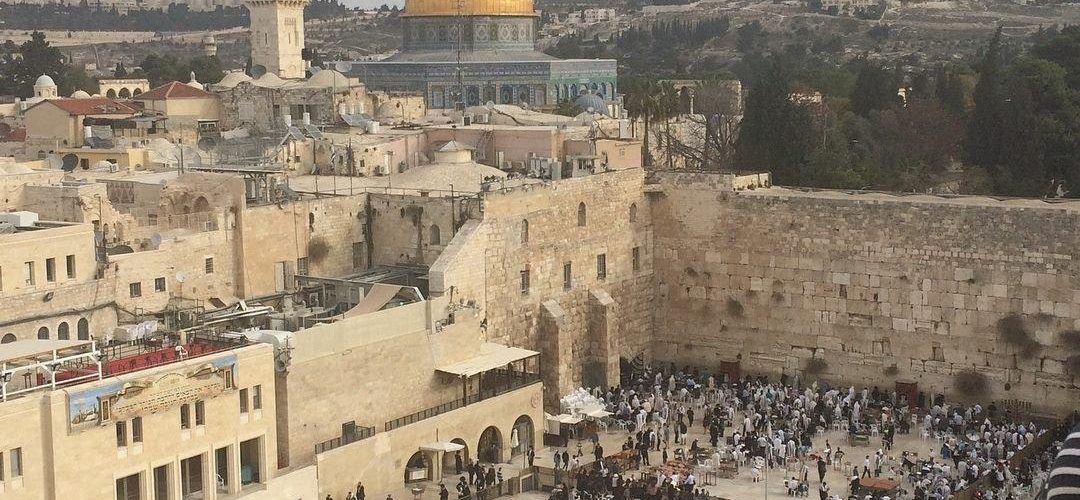Experience Reflection by Scott Boxer
Not long after President Trump announced the US recognition of Jerusalem as the capital of Israel, countries around the world reacted. They spoke about the “gravity of consequences,” as Palestinian Authority President Abbas put it, and threatened to cut diplomatic ties with Israel, like Turkish President Recep Tayyip Erdogan.
Not long after President Trump announced the US recognition of Jerusalem as the capital of Israel, Prime Minister Netanyahu called the announcement “courageous and just.” Trump’s Evangelical base praised him for the move, fulfilling one of his campaign promises they held to be one of the most important.
Also not long after President Trump announced the US recognition of Jerusalem as the capital of Israel, I spent an overcast December day wandering the corridors and stone paths of the Old City of Jerusalem. What was the biggest thing I took away from this day of exploring? That no op-ed, no official statement or speech, no Presidential decree or UN resolution could even begin to encompass the complexities and importance of Jerusalem.

Of course, I feel a strong connection to Jerusalem. I lived there for half a year. I can tell you all the shortcuts to the Kotel and the best shawarma and falafel places and bars throughout the city. I understand and embrace the history and spirituality that connects the Jewish people to the city for the last 3000 years and longer. But I also understand that it’s important to billions of others because their faiths and national histories run through the winding alleyways of this beautiful city. It’s nearly impossible to deny this: the bells of the Church of the Holy Sepulchre that toll every hour, and the shining golden dome and the muezzin’s call from the Temple Mount/Haram al-Sharif make the Christian and Muslim presence in Jerusalem known to all who enter.
To explore the city, and to do so with all of this in mind, is the only way to begin to comprehend the situation around Jerusalem, and explains why nobody can truly know what effect this move by the Trump administration will have.
You must have a day like mine to understand. Start your day putting a note in the Kotel and davening Shacharit at the Kotel, the closest spot to the holiest place in the world for Jews. Take in the atmosphere as Haredi rabbi davens next to a family from America celebrating their young son’s bar mitzvah, all next to a group of Birthright participants coming home for the first time.
From here, walk to the Muslim quarter and find the Suq el-Qatanin, the Cotton Market. Walk down its dimly lit path and walk up the first step at the end, but don’t be surprised when the Israeli police at the top tell you to walk no further, or risk offending Muslim worshippers by entering the third holiest site in Islam from a Muslim only entrance. From here, you can catch a glimpse of the Dome of the Rock, the gold dome shining in your eyes and the blue tiles on the walls forming infinite intricate patterns. Grab a cup of Arab coffee or tea at the shop by the stairs, tell Musa the shop owner, “shukran” (thank you), and drink the strongest drink of your life. Smell the tobacco, listen to the old men argue as they play backgammon, and even try to join them in their arguments.


Meet the Muslim fabric seller whose family has been in Jerusalem for almost 1000 years and who is the third generation to be selling fabric for garments the custodians of the Church of the Holy Sepulchre and for Orthodox Jewish men. Ask him what he thinks of the divisiveness and sometimes hatred between the three main religions of the city. Hear him explain that he just wants what is good for people and what is good for business, that people can live as they want as long as they can live together.


If you are lucky enough to be there at the right time of the year, light Chanukah candles with the Jewish family whose address makes a political statement by being right in the middle of the Muslim quarter. You don’t need to agree with them, and you can feel uncomfortable with their choice to make such a potentially provocative move. But remember that these people still are trying to live their lives, dealing with some neighbors who accept their presence and others who don’t, like the eight-year-old child who, with his limited English ability, told me “leave here, Jew! You not welcome here!”
Jerusalem is a city for the passionate. Those passionate about peace and coexistence, those passionate about their religion and nation, and those passionate about doing anything to stop the other religion or nation. Sometimes you will see beautiful things there, sometimes you will see things that will make you question why so many people love this city. In one day you can feel like you are being welcomed like royalty into a person’s coffee shop and then be spit upon by your religious compatriots simply for not agreeing with them. Jerusalem is many things and inspires many reactions. But the one thing it is not is this: it is not something which can be boiled down into a few hundred words, not even these few hundred words. Only those who experience it; those who hold their beliefs close, but not so close that they seem to be the only valid and moral beliefs; those who go out and explore can understand it. Walk its alleys, climb its walls, drink its coffee, listen to its bells and muezzins and shofars. If nobody does that, then it will be doomed to be a terribly misunderstood square mile for all of eternity.
Scott Boxer
Scott is a sophomore studying International Relations. He is currently president of AU Students for Israel and is a Hasbara Fellow.


